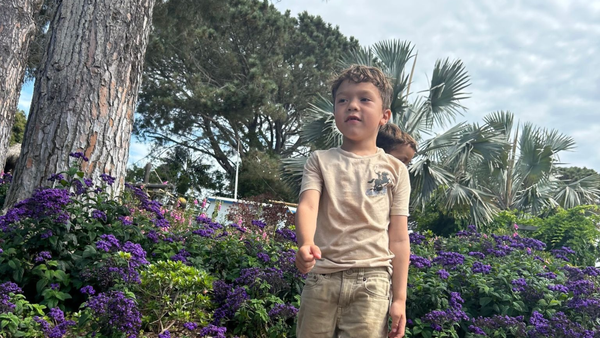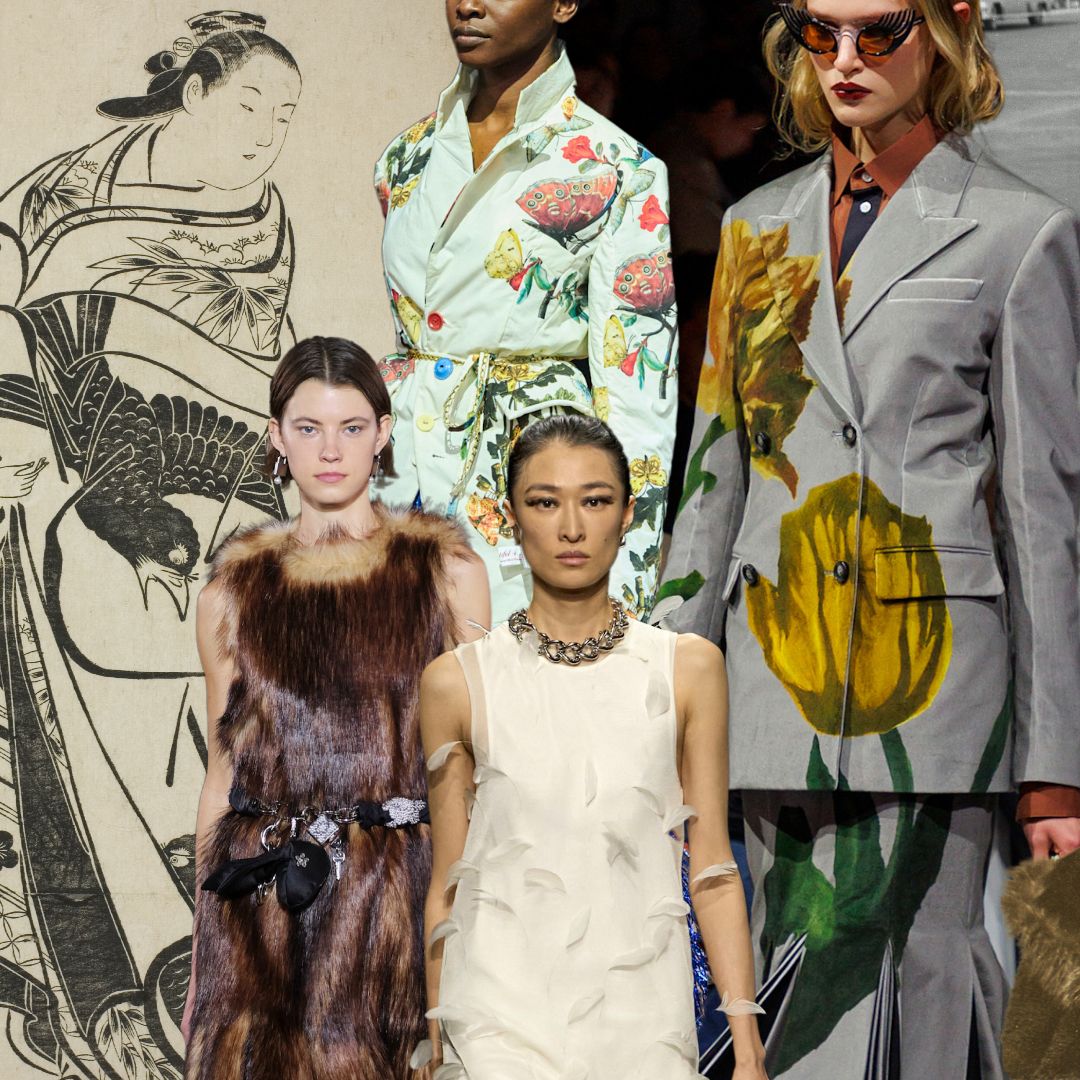
Fashion thrives on fantasies of the unknown. What would a socialite from another galaxy wear to a cocktail party? Perhaps a sequined Prada slip dress. What will women wear fifty years into the future? Rick Owens predicts "glunge," a blend of glamour and grunge. But as much as it's fueled by surreal imaginations, some of fashion's best work comes from elements that already exist in nature—like Christian Dior's floral prints in the 1940s, which led to a much-needed return to romanticism after World War II. Or, cut to the most recent Paris Couture Week, where Dutch designer Iris Van Herpen showed a luminous "living" dress made of bioluminescent algae, an unprecedented creation that belongs in both fashion history and biology textbooks.
Looking at the fall 2025 collections, Mother Nature was once again a powerful muse. Creative director Sarah Burton's debut at Givenchy featured garden fresh evening gowns stitched with wildflowers and swallows. Meanwhile, Prada topped its coats with faux Sable pelts, and Brandon Maxwell showed silk dresses and tops hand-painted to resemble the fur of an Arctic wolf. Even looks that went in a more avant-garde direction were grounded with natural components: Ferragamo presented a feathered midi dress in bright cardinal red, which, while fantastical, was reminiscent of the birds chirping outside your window.
The incoming fall fashion is a reminder for us all to, as the kids say these days, "go touch grass." Ahead, Marie Claire breaks down the nature-inspired trends we'll see unfurl in the coming weeks, including lots of faux furs, feathers, and understated color palettes that look like what you'd see on a desert hike.
Pelt It
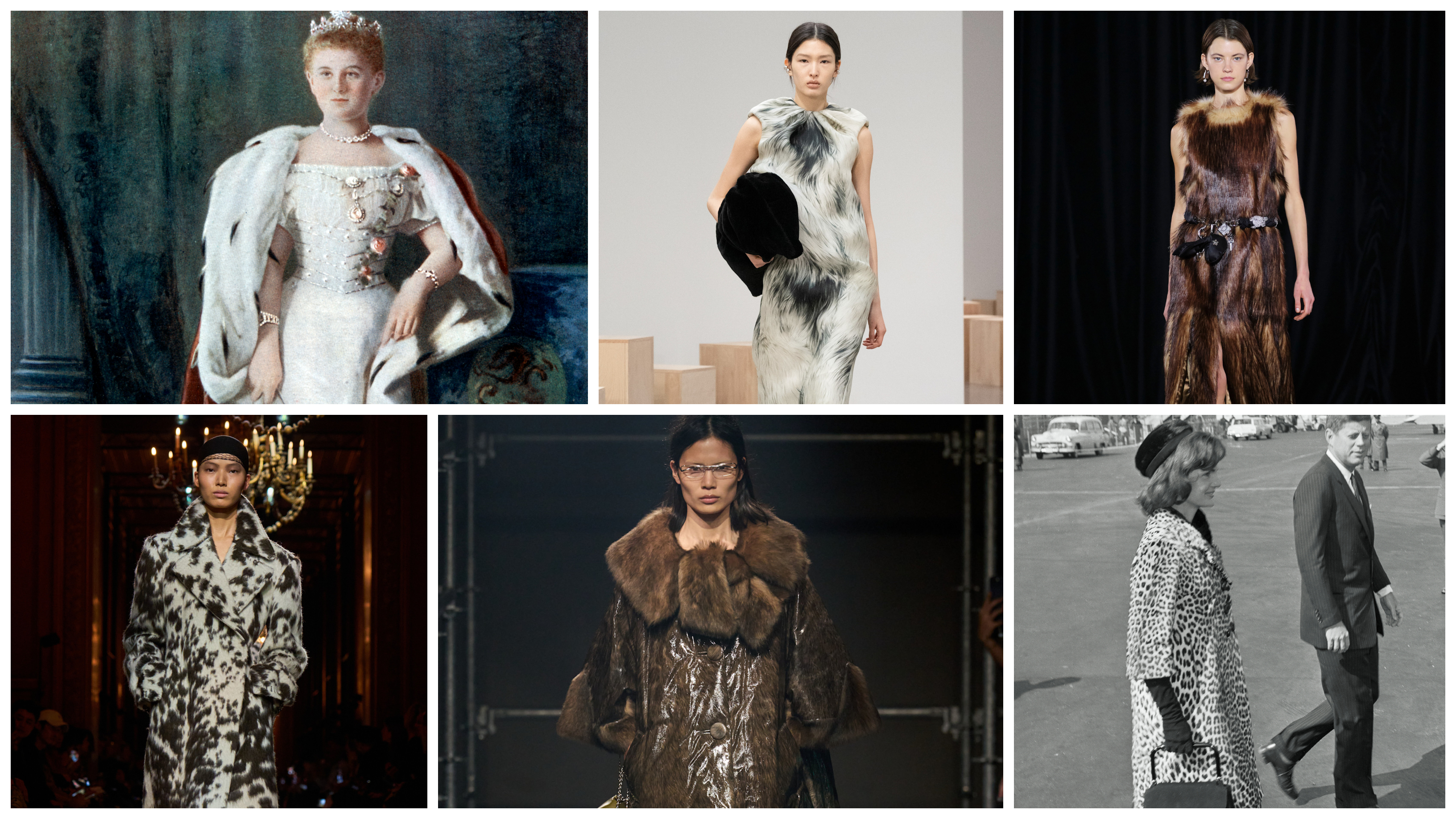
Animal hide, from cheetah spots and tiger stripes to ermine fur, has long been an influence on fashion. Often to detrimental effects: After Jackie Kennedy wore an Oleg Cassini top coat made of a natural leopard pelt in 1962, demand for the cat hide soared so high that the US Congress passed a 1973 act prohibiting the importation of all leopard fur.
But by and large, no animals were harmed by fall 2025's take on furs. Brands like Prada and Simone Rocha incorporated fuzzy faux fabrications, while Dries Van Noten and Brandon Maxwell opted for printed imitations of hairy hides.
Earthy Tones
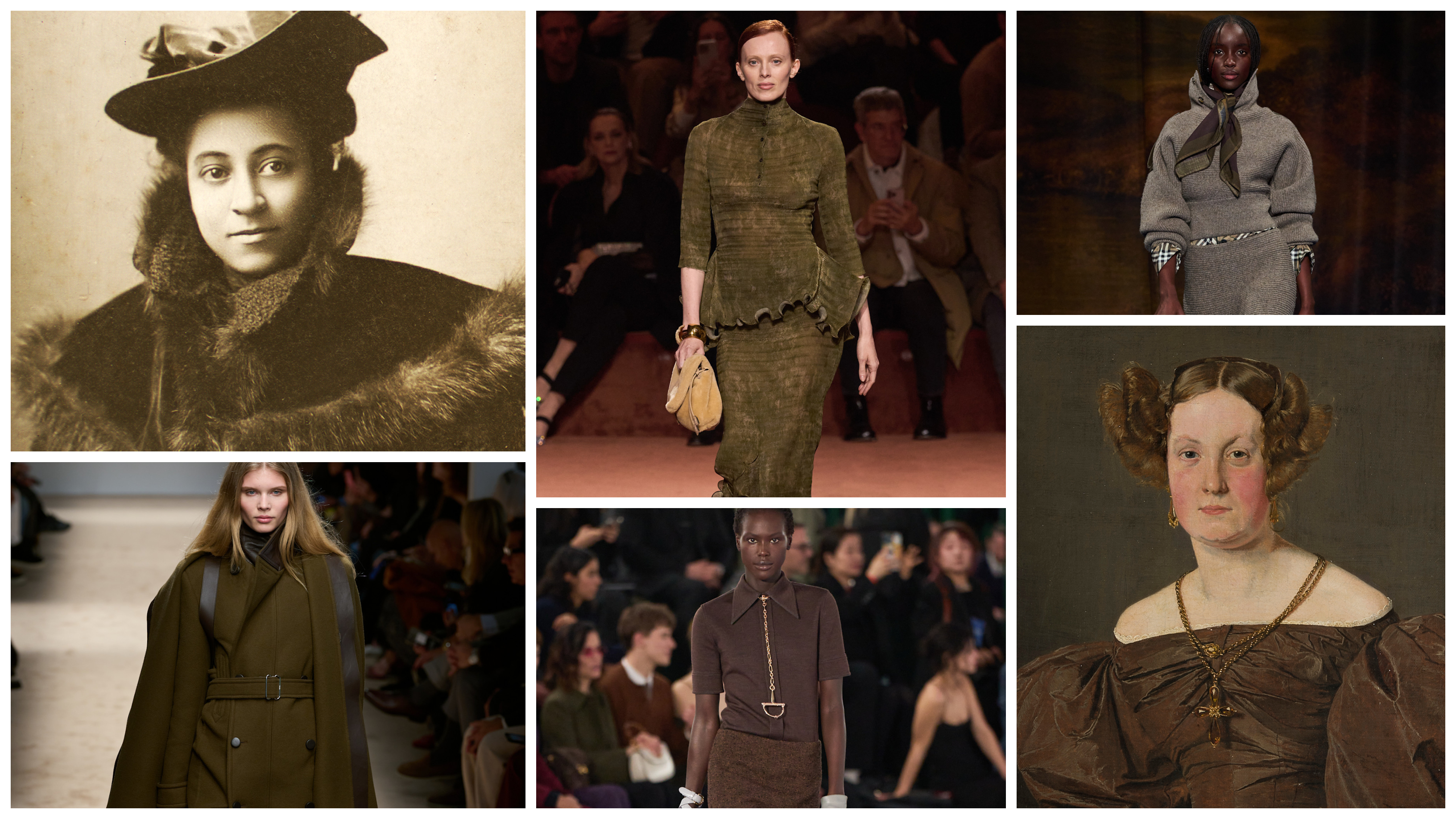
Dating back to ancient civilizations and medieval Europe, long before "butter yellow" and "tomato girl red" came into existence, colors created from natural vegetable dyes were the mainstream because they were inexpensive to produce. The regal purples and shocking reds were reserved for the royals and nobility who had the coins to afford such rich shades.
Fast forward to the present, where earthy colors align with the quiet luxury look—like Fendi's olive greens, Gucci's rich browns, and the other fall color trends that pull from a tonal palette you'd spot on a nature hike.
Garden Motifs
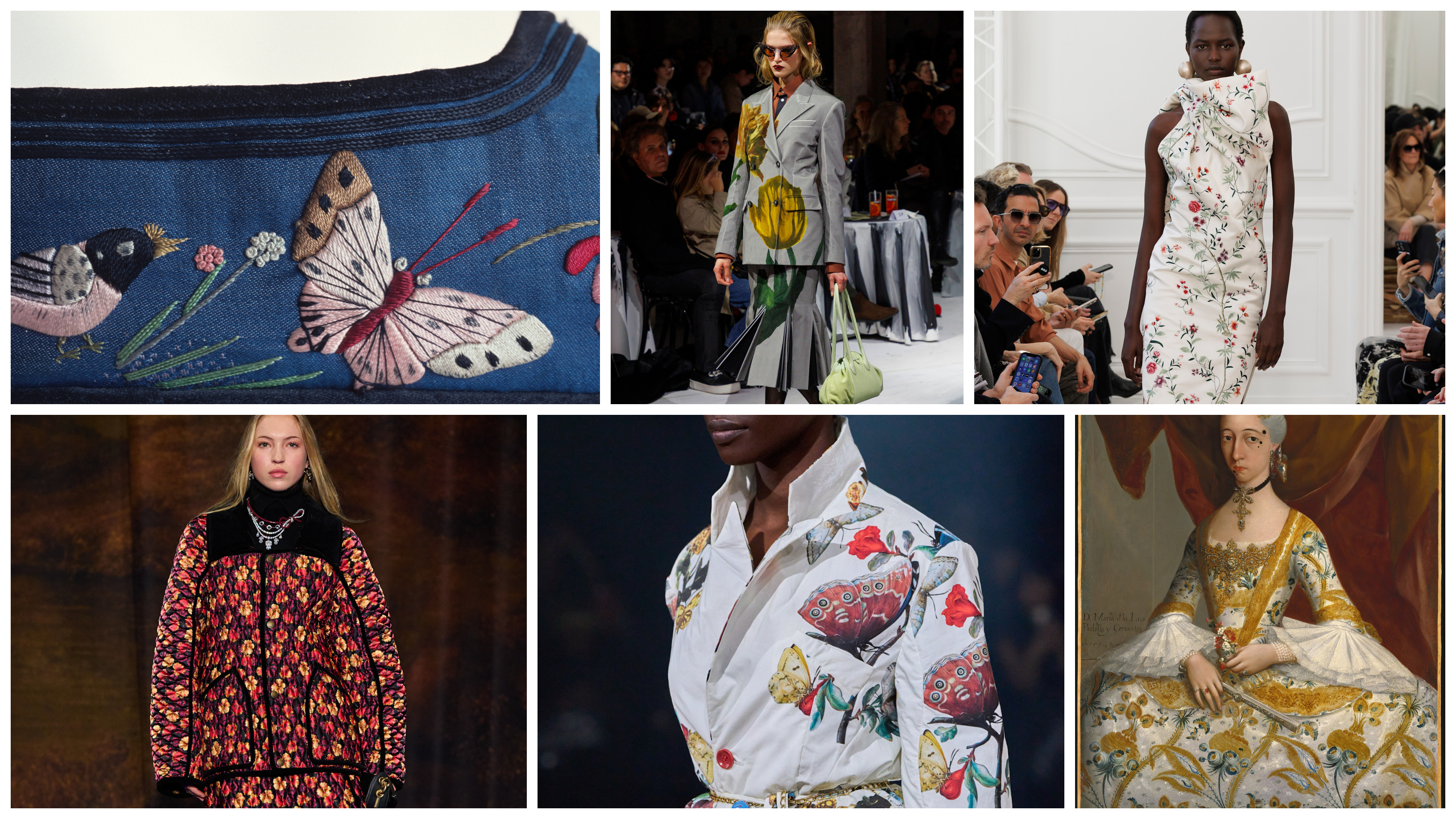
Across time, artisans have taken inspiration from the creatures and beings who populate—and pollinate—the natural world, dating back to 17th-century crewelwork embroidery and ancient Chinese handicrafts. Now, brands like Marni, Givenchy, Burberry, and Undercover show their appreciation for nature's beauty via photo-realistic butterfly motifs, carnation prints, and hand-painted tulip decals.
Avian Inspired
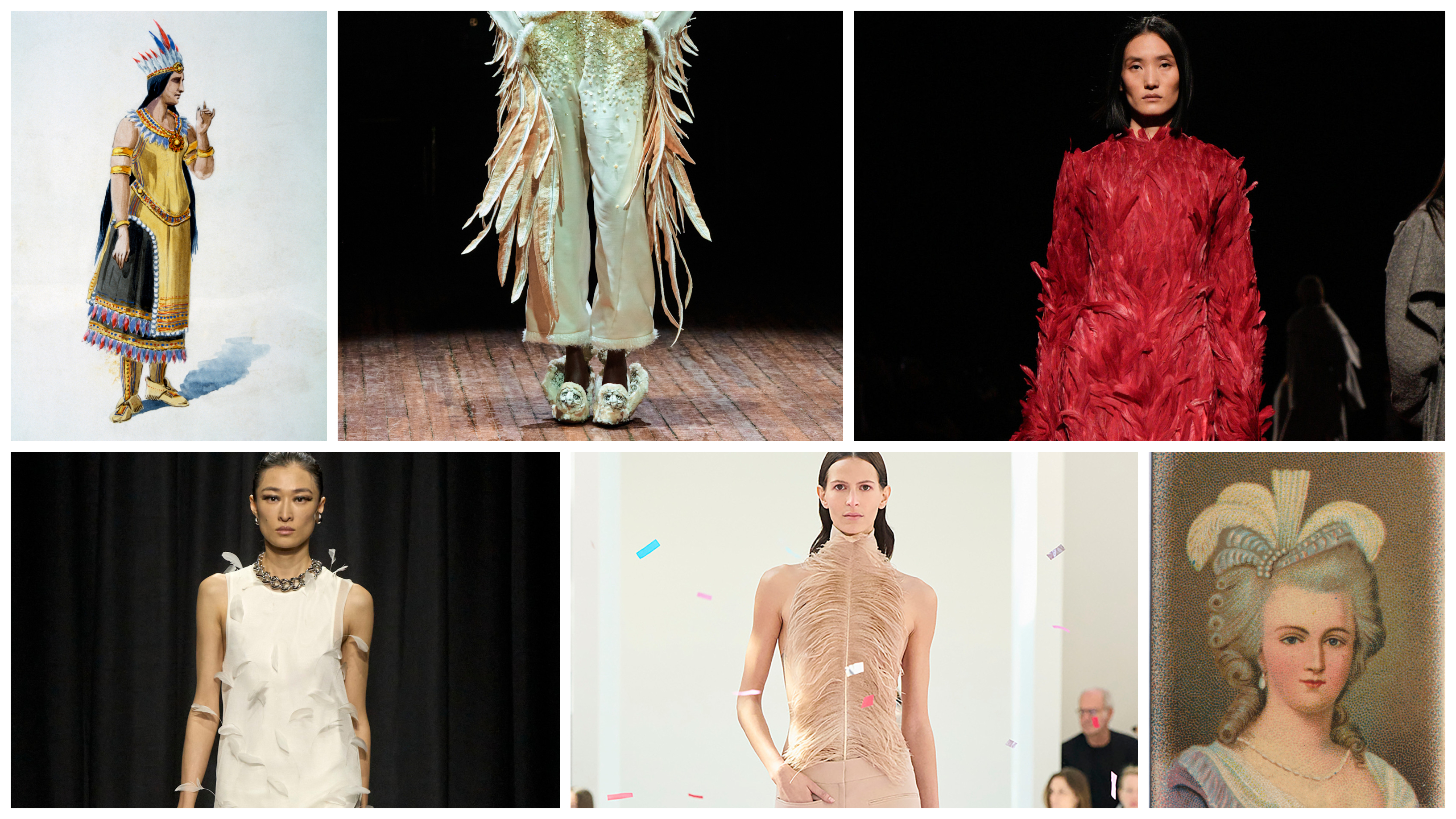
A deeply sacred symbol tied to spirituality in Indigenous American cultures, as well as a calling card of the elite and noble during Marie Antoinette's heyday, feathers have a long-standing and expansive relationship with fashion. Come fall 2025, they're a sign of craftsmanship and avian influence, like Underover's pants with plumage and Courrèges' feather turned into a turtleneck top.
Zootopia
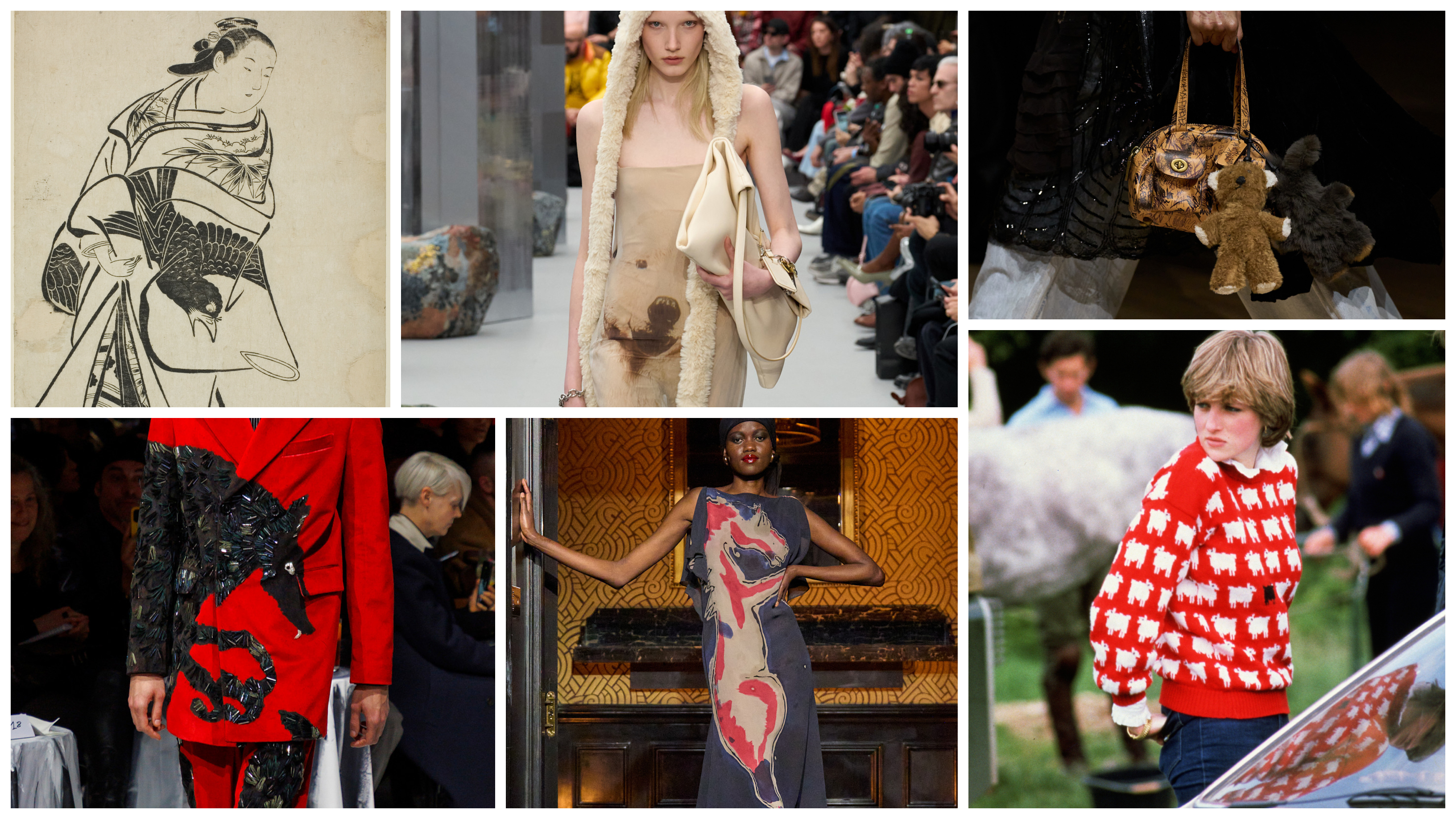
Seen on kimonos stitched with cranes in 18th-century Japan to Princess Diana's black sheep sweater from 1898, animals have and always will find their way into our closets. Whether it's an emotional support animal keychain from Coach or a polar bear-printed slip dress by Acne Studios, you can have your pick of the zoo this season.




